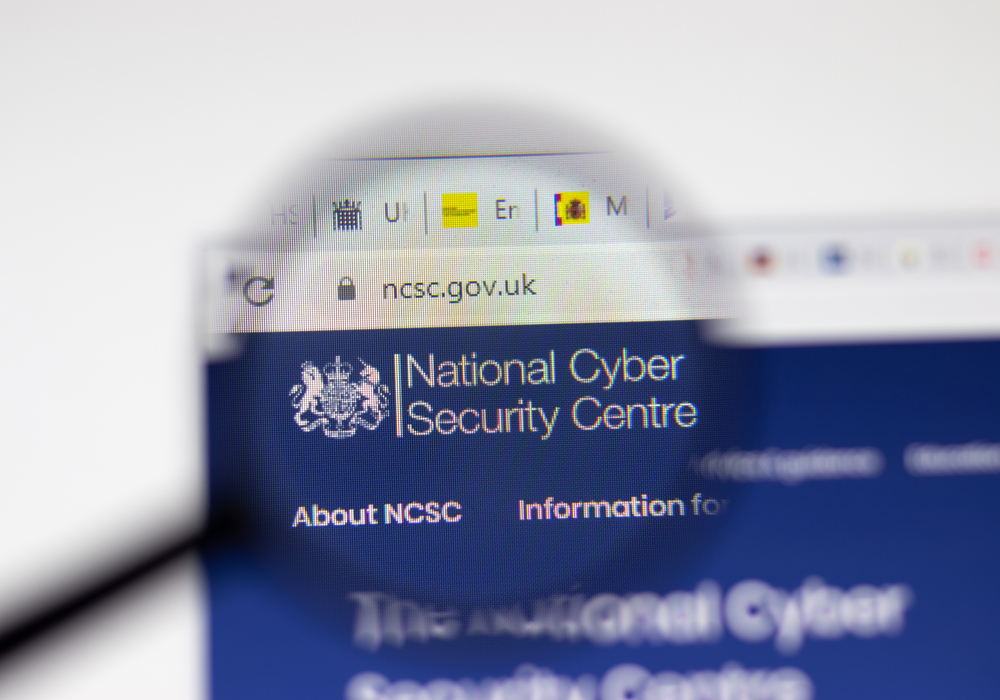NCSC unveils email security-checking tool for private sector organisations at CYBERUK
The free service will focus on checking for TLS and DMARC compliance to protect against anti-spoofing and email hijacking


The National Cyber Security Centre (NCSC) has released a brand-new tool for businesses to check the strength of their email security in a bid to reduce the number of cyber attacks they suffer.
Announcing the new service at the organisation’s annual CYBERUK conference, Email Security Check will assess if a business is vulnerable to attacks by checking two aspects of cyber security using publicly available online domain information.
The online service will check to see if anti-spoofing protocols such as domain-based message authentication, reporting and conformance (DMARC) have been configured correctly which can help prevent cyber criminals from sending emails purporting to be from a business.
DMARC helps businesses verify their email headers which will ensure emails sent from inside the organisation are trusted by the receiver, while those sent by cyber criminals attempting to spoof the company through email scams are seen as untrusted and less likely to be opened.
The second aspect of cyber security assessed by Email Security Check is email privacy. It does this by checking for privacy protocols such as transport layer security (TLS) are implemented in an organisation’s email client.
TLS is an industry-standard method of encrypting data between senders and can be found in most modern email providers. Building on the work from secure sockets layer (SSL), TLS ensures email communications cannot be hijacked and tampered with while in transit.
The NCSC said Email Security Check is a developing service and it will be adding more features “in the near future”.
Get the ITPro daily newsletter
Sign up today and you will receive a free copy of our Future Focus 2025 report - the leading guidance on AI, cybersecurity and other IT challenges as per 700+ senior executives
The cyber organisation also said the service should not be confused with one that checks domains or individual emails for malicious activity. All suspicious emails should be reported to internal IT teams and the NCSC at report@phishing.gov.uk.
RELATED RESOURCE

“Email plays a central role in how organisations communicate every day so it’s vital that technical teams have measures in place to protect email systems from abuse,” said Paul Maddinson, NCSC director for national resilience and strategy.
“Our new Email Security Check tool helps users identify where they can do more to prevent spoofing and protect privacy and offers practical advice on how to stay secure.
“By following the recommended actions, organisations can help bolster their defences, demonstrate they have taken security seriously, and make life harder for cyber criminals.”
The tool is a stripped-back version of the existing Mail Check service offered by the NCSC, which is another free initiative that checks for DMARC and TLS compliance but is only available to public sector entities.
According to NCSC figures, organisations’ adoption of recommended controls varies wildly with some having just 7% of the bare minimum security measures in place.
The Email Security Check website was made available today and requires no details, personal or otherwise, from the user to access the service.

Connor Jones has been at the forefront of global cyber security news coverage for the past few years, breaking developments on major stories such as LockBit’s ransomware attack on Royal Mail International, and many others. He has also made sporadic appearances on the ITPro Podcast discussing topics from home desk setups all the way to hacking systems using prosthetic limbs. He has a master’s degree in Magazine Journalism from the University of Sheffield, and has previously written for the likes of Red Bull Esports and UNILAD tech during his career that started in 2015.
-
 Asus ZenScreen Fold OLED MQ17QH review
Asus ZenScreen Fold OLED MQ17QH reviewReviews A stunning foldable 17.3in OLED display – but it's too expensive to be anything more than a thrilling tech demo
By Sasha Muller
-
 How the UK MoJ achieved secure networks for prisons and offices with Palo Alto Networks
How the UK MoJ achieved secure networks for prisons and offices with Palo Alto NetworksCase study Adopting zero trust is a necessity when your own users are trying to launch cyber attacks
By Rory Bathgate
-
 Five Eyes leaders issue guidance for MSPs to prevent second SolarWinds attack
Five Eyes leaders issue guidance for MSPs to prevent second SolarWinds attackNews The joint advisory published today said MSPs and customers need more vigilant in the wake of Russia's invasion of Ukraine
By Connor Jones
-
 Podcast transcript: Why is email still a thing?
Podcast transcript: Why is email still a thing?IT Pro Podcast Read the full transcript for this episode of the IT Pro Podcast
By IT Pro
-
 The IT Pro Podcast: Why is email still a thing?
The IT Pro Podcast: Why is email still a thing?IT Pro Podcast Despite a proliferation of newer collaboration platforms, email stubbornly refuses to go away
By IT Pro
-
 Cisco patches bug that could break its email security service with a single message
Cisco patches bug that could break its email security service with a single messageNews A carefully crafted email could freeze Cisco's Email Security Appliance interface and stop it processing messages
By Danny Bradbury
-
 UK gov introduces cyber bill designed to clamp down on unsecure devices
UK gov introduces cyber bill designed to clamp down on unsecure devicesNews Law could prevent sale of smartphones, TVs, speakers, toys, and other digital devices that fail to meet minimum security requirements
By Rene Millman
-
 Google targets phishing with full BIMI email logo authentication support
Google targets phishing with full BIMI email logo authentication supportNews Gmail will tie logos to DMARC authentication
By Danny Bradbury
-
 UK telcos could be fined £100,000 a day for breaching Huawei ban
UK telcos could be fined £100,000 a day for breaching Huawei banNews The Telecommunications Security Bill aims to diminish the threat of operators using high-risk vendors in 5G networks
By Sabina Weston
-
 Huawei kit contained flaws of 'national significance', NCSC reports
Huawei kit contained flaws of 'national significance', NCSC reportsNews The report finds that the defects were not the result of interference from the Chinese state
By Sabina Weston